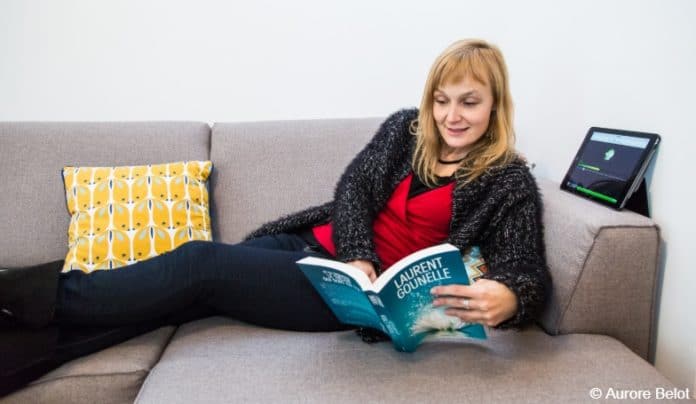The lockdown is a particularly challenging time for people with disabilities. Among the many initiatives emerging, Belgian association Ligue Braille is helping blind and partially sighted people cope with isolation by reading them stories over the phone and sending audio books in the post.
“Being blind or partially sighted is already a constant challenge. Today, with the lockdown, it becomes an even greater challenge. It’s an additional handicap,” explains Christine Beausaert, director of the francophone department at the Ligue Braille, which supports more than 15,000 blind or partially sighted people in Belgium, most aged over 65.
Breaking the isolation
Life under lockdown poses several issues in terms of independence and isolation for the visually impaired. Trips outside the home, which were already complicated, have become even more difficult. Blind and partially sighted people can struggle to follow physical distancing measures in place to protect against Covid-19. They can find it harder to ensure they keep the two-metre distance required from people around them. Their usual support networks are also less able to help them, such as by accompanying them to the supermarket.
Since the closure of the Ligue Braille’s library during the lockdown, 79-year-old Monique, who is visually impaired, is unable to make her regular trips there to read their large-print books.
“I feel locked up; I miss everything,” she told UNRIC.

“I liked it a lot. The story was beautiful. It is completely different when a story is told to you. It made things slightly easier,” she says.
Ligue Braille also offers ‘A book a week’, where its members are sent an audio book for free each week in the post. 7,000 CDs have already been sent, and 22,000 audio books are also available to download on their website.
“We want culture to remain accessible to blind and partially sighted people, despite the lockdown. Above all, the initiative helps keep their minds active while creating social ties, meaning they can break their isolation and put some spark into their daily lives,” says Christine Stiennon, communications advisor at the Ligue Braille.
Reduce inequalities
On 6 May, UN Secretary-General António Guterres urged governments to guarantee the equal rights of people with disabilities during the pandemic. Reducing inequalities is at the heart of Sustainable Development Goal 10.
“I urge governments to place people with disabilities at the centre of COVID-19 response and recovery efforts and to consult and engage them. When we secure the rights of people with disabilities, we are investing in our common future,” he concluded.
To receive one of the ‘Stories over the phone’, schedule a call on 02/533.32.87 from Monday to Friday, 9 am to 12.30 pm.
While this project is reserved for volunteers who were already active before the lockdown, Ligue Braille is always looking for volunteers in other areas. To find out more, email: [email protected]
Additional links:

